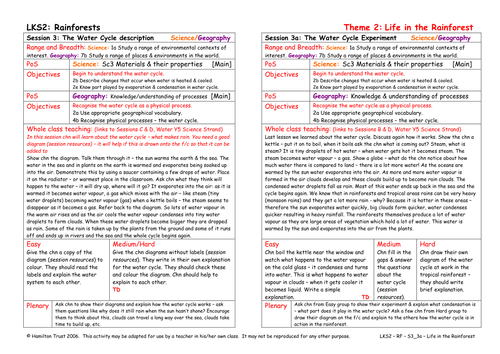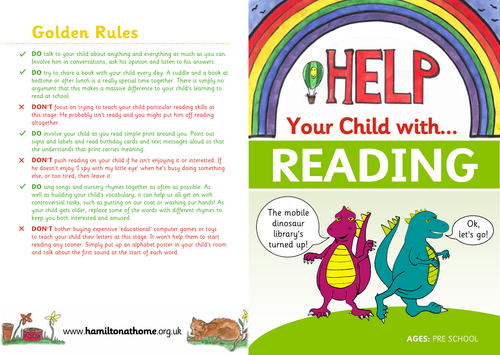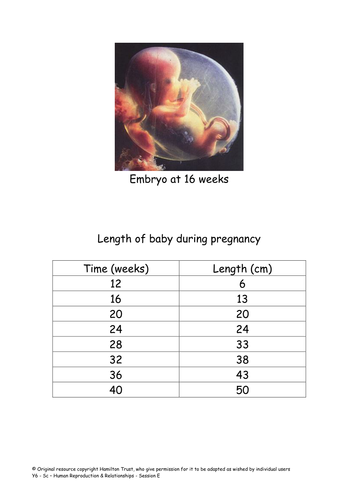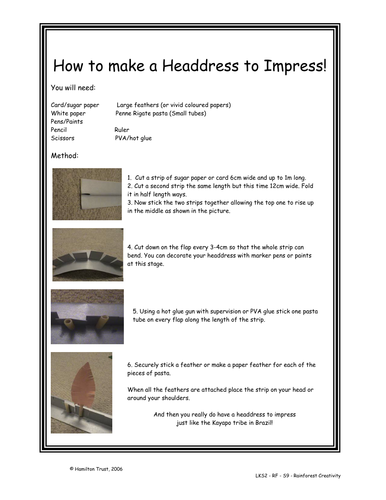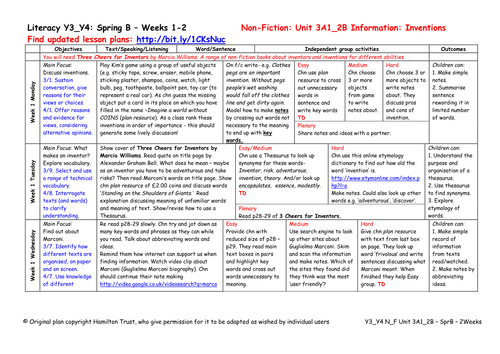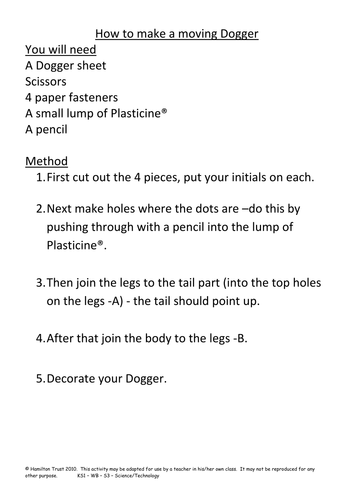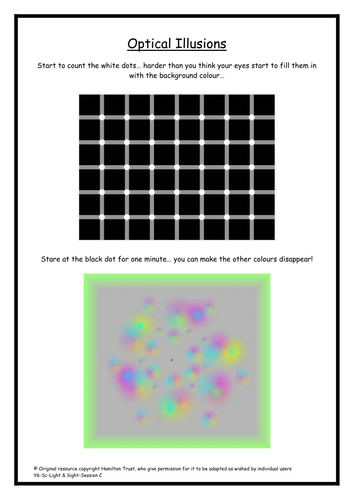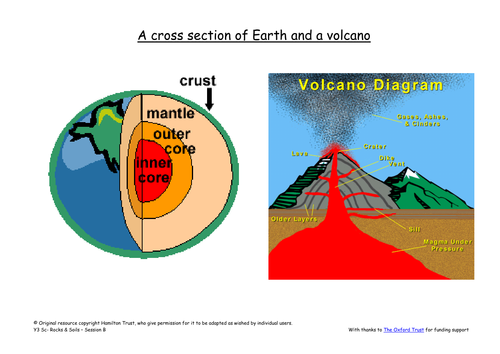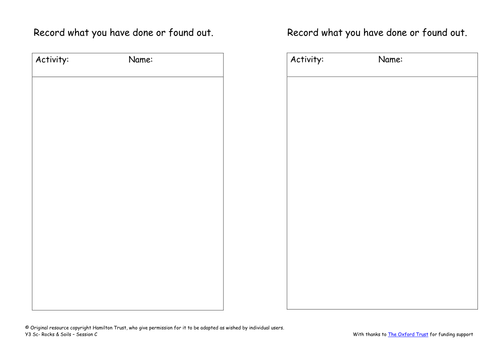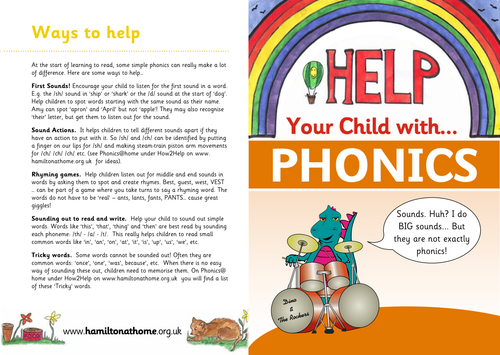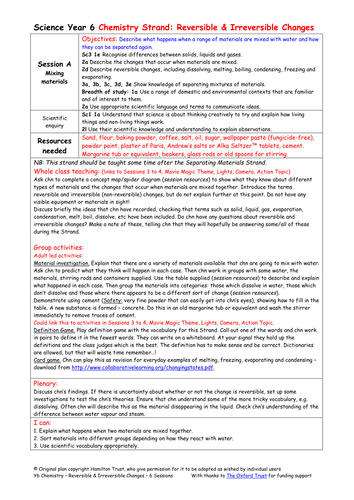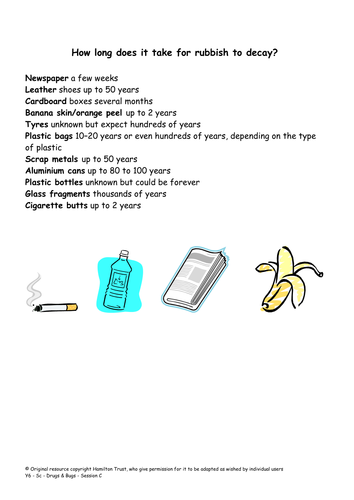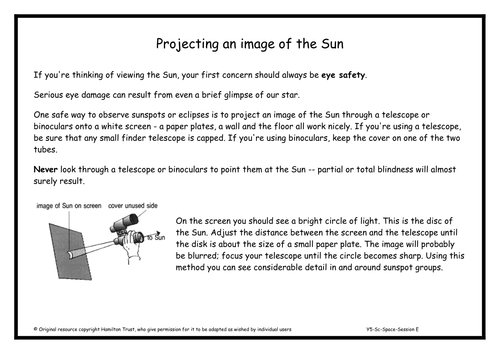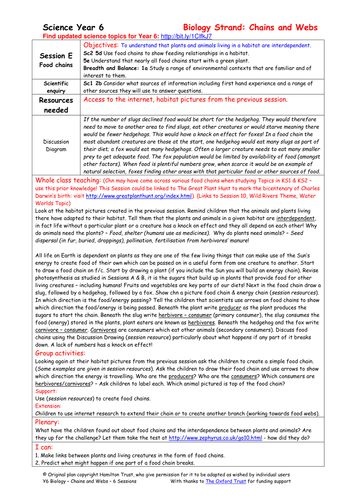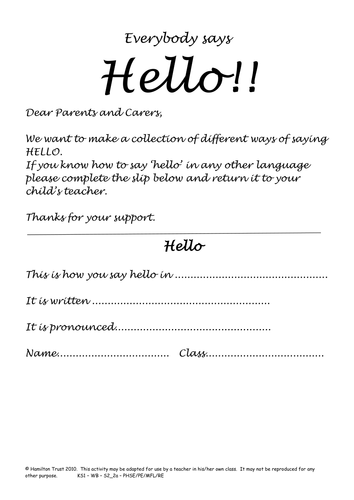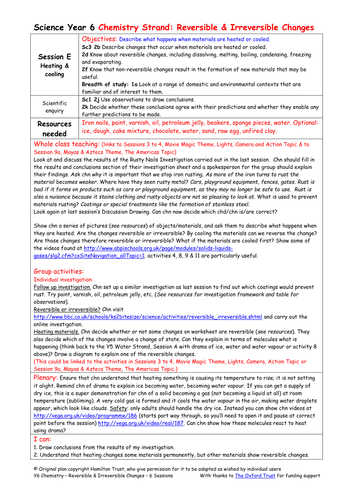
397Uploads
10041k+Views
11644k+Downloads
All resources

The Water Cycle Experiment
In this session children get a better understanding of why there is so much rain in rainforest regions. Chn create simple explanations in wordsildren pictures and diagrams.
Suitable for years 3 and 4.

Pregnancy
Session 1 - Changes at puberty prepare our bodies to have children of our own. Look in more detail at human fertilisation and pregnancy and learn how important it is for mother-to-be to look after her health. Look at baby growth in utero and explain function of umbilical cord.
Session 2 - Watch a video of a birth and discuss other forms of delivery such as Caesarean or forceps deliveries. Discuss how the parents’ lives will now change and relate this to children’s Flour Babies experience. Research birth rites of passage in different cultures.
Suitable for Y6 pupils.

Headdress to Impress!
The Kayapo Indians who live in the Rainforests of Brazil are famous for their ceremonial headdresses. In this session children use the internet to study their designs before creating their own to wear in the classroom.

Yr 3/4 NF Unit 3A1-2B Information: Inventions
Explore how to find and present information about inventors and inventions. Give a talk as part of a group. Watch and listen to inventors explaining their ideas online. Make notes and contribute to a creative class book about inventors.

Make a Moving Dogger
Practise cutting and joining skills by making a moving Dogger. This session links to English Plan 2 Stories with familiar settings. Learn how to cut well, make a hole in cardboard and construct moving joins using paper fasteners.

Earth, Moon and Sun
The world is in their hands in this session along with the Moon and the Sun! Children create drawn scale models of each and use a trundle wheel to measure scaled distances between them.
Suitable for Year 5 pupils.

Eyes
Children get an insight into sight in this session. They find out that to see things, light needs to enter the eye, and how their eyes function. They also find out how to care for their eyes and that sometimes eyes can even play tricks on us!
Suitable for Y6 pupils.

Under our feet!
Explore what is under our feet. Draw and label a cross section of the Earth. Discover the three main rock types. Test the permeability of different kinds of rocks. Find out information from websites.
Suitable for Y3 pupils.

Rock investigations
Learn some key vocabulary about rocks. Take part in a workshop offering a range of activities including testing hardness of rocks, sorting rocks, finding information, drawing rocks and thinking about how pebbles and sand are formed.
Suitable for Y3 pupils.

Britain
What do we mean by Britain? Establish which countries make up the United Kingdom, Great Britain and the British Isles. Discuss again the different peoples who make Britain what it is today. Children make jigsaw of British Isles showing different peoples.

Three states of matter
Solid, liquid or gas? That is the question that kicks off this block of six sessions. Children investigate the properties of the three states and sort some familiar and unfamiliar objects into them. Suitable for Y5 pupils.

Mixing materials
Find out what children already know about materials and the changes that occur when they are mixed. Predict and investigate what happens when a variety of materials are mixed with water. (Re)introduce terms reversible and irreversible. Play a vocabulary game.
Suitable for Y6 pupils.

Food and micro-organisms
Look at micro-organisms that are beneficial to food production and the problems of food decay caused by micro-organisms. Study yeast growth and begin some decay investigations on damp bread and apples. Use yeast to make bread rolls and discuss food hygiene.
Suitable for Y6 pupils.

Star constellations
Children have stars in their eyes in this session as they find out more using internet research. They identify common constellations and discover how they are linked to horoscopes. How accurate are their star sign characteristics?
Suitable for Year 5 pupils.

Food chains
All plants and animals living in a habitat are interdependent. In this session the children investigate a number of feeding relationships and create food chains to show the transfer of energy from the producers through the consumers.
Suitable for Y6 pupils.

We All Say Hello
Play circle games to practice greeting each other confidently. How many ways do children know to say hello in a different language? Learn 3 new ways.

Erosion
Children consider the different types of erosion, water, wind, glacial, sea and soil.
In groups each with a different type of erosion children research for information and then draw cartoon strips explaining how the types of erosion occur.

Heating and cooling
Use findings from Rusty Nails Investigation to plan another test. Look at the changes that occur when common materials are heated, and then decide whether or not cooling will reverse the change. What happens if the materials are first cooled and then heated?
Suitable for Y6 pupils.

